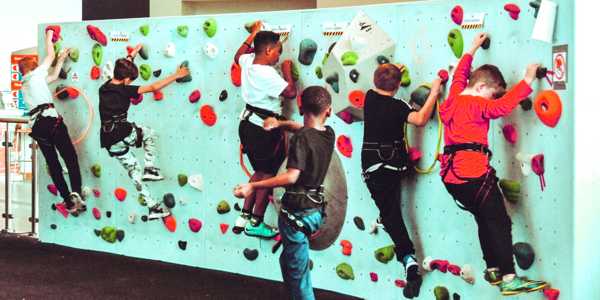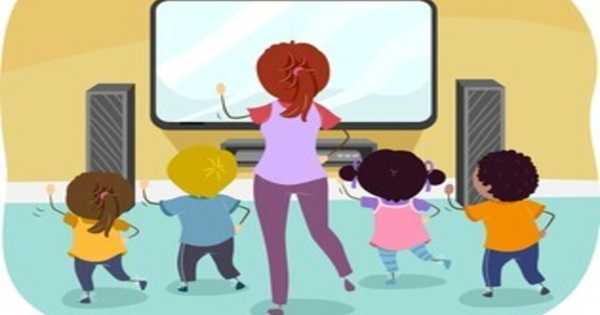According to new research, well-designed and delivered online interventions such as ‘exergames’ and smartphone apps can improve children’s physical activity. The study’s findings were published in the journal ‘Physical Education and Sport Pedagogy.’ According to new research, well-designed and delivered online interventions such as ‘exergames’ and smartphone apps can improve physical activity among young people.
According to a review study conducted at the University of Birmingham, children and young people in PE lessons responded positively to the use of exergames, which deliver physical activity lessons through games or personalized activities. Physical activity levels increased, but so did emotions, attitudes, and motivations toward physical activity.
The study, published in Physical Education and Sport Pedagogy, is one of the first to investigate not only the impact of online interventions on physical behaviors in non-clinical groups of young people, but also the effects of digital mediums on physical activity knowledge, social development, and mental health improvement.
Physical activity among young people can be improved by well-designed and delivered online interventions such as ‘exergames’ and smartphone apps, new research shows.
The evidence can be used to inform health and education organizations on how to design online interventions to reach out to and engage young people in physical activity. The authors examined 26 studies of online physical activity interventions. They discovered three major mechanisms at work: gamification, in which participants progress through various levels of achievement; personalization, in which participants received tailored feedback and rewards based on progress; and information, in which participants received educational material or guidance to encourage behavioral change.
Physical inactivity in children is a major public health issue. It has been proposed that excessive screen time is one of the factors that encourage sedentary lifestyles in young people. As young people’s levels of physical inactivity and obesity continue to rise, it has been proposed that new-generation active computer and video-console games (also known as “exergaming”) may offer the opportunity to contribute to young people’s energy expenditure during their free time.

Although studies have produced some encouraging results regarding the energy costs associated with playing active video console games, the energy costs of playing authentic versions of activity-based video games are significantly higher, highlighting that active gaming is not a replacement for real sports and activities. A few exergaming activities involve children in moderate-intensity activity, but the vast majority do not. Only three small trials have looked at the effects of exergaming on children’s physical activity levels and/or other health outcomes. Evidence from these trials has been mixed; positive trends for improvements in some health outcomes in the intervention groups were noted in 2 trials.
The majority of the interventions focused on gamification or personalization, and the researchers discovered that the majority of studies (70 percent) reported an increase and/or improvement in physical activity outcomes for children and young people who participated in online interventions. Primary school students, in particular, benefited from participation in PE lessons.
Dr. Victoria Goodyear of the University of Birmingham’s School of Sport, Exercise, and Rehabilitation Science, the study’s lead author, stated: “We find convincing evidence that PE teachers can use online learning to improve young people’s attitudes and participation in physical activity, particularly those in primary school. There is a real opportunity for the physical education professionals to lead the way in designing meaningful and effective online exercise opportunities, as well as to embed positive approaches to exercise and online games and apps at an early stage.”
Physical activity is beneficial to all children. Before your child begins a physical activity routine, it is best to consult with a doctor. Seek advice from a professional with knowledge of physical activity and disability. They can provide you with more information about the types and amounts of physical activity that are appropriate for your child’s abilities.
As a parent, you have the ability to influence your child’s attitudes and behaviors toward physical activity. Knowing the suggestions is a good place to start. Encourage your child to engage in 60 minutes or more of physical activity per day, with activities ranging from informal, active play to organized sports.
















